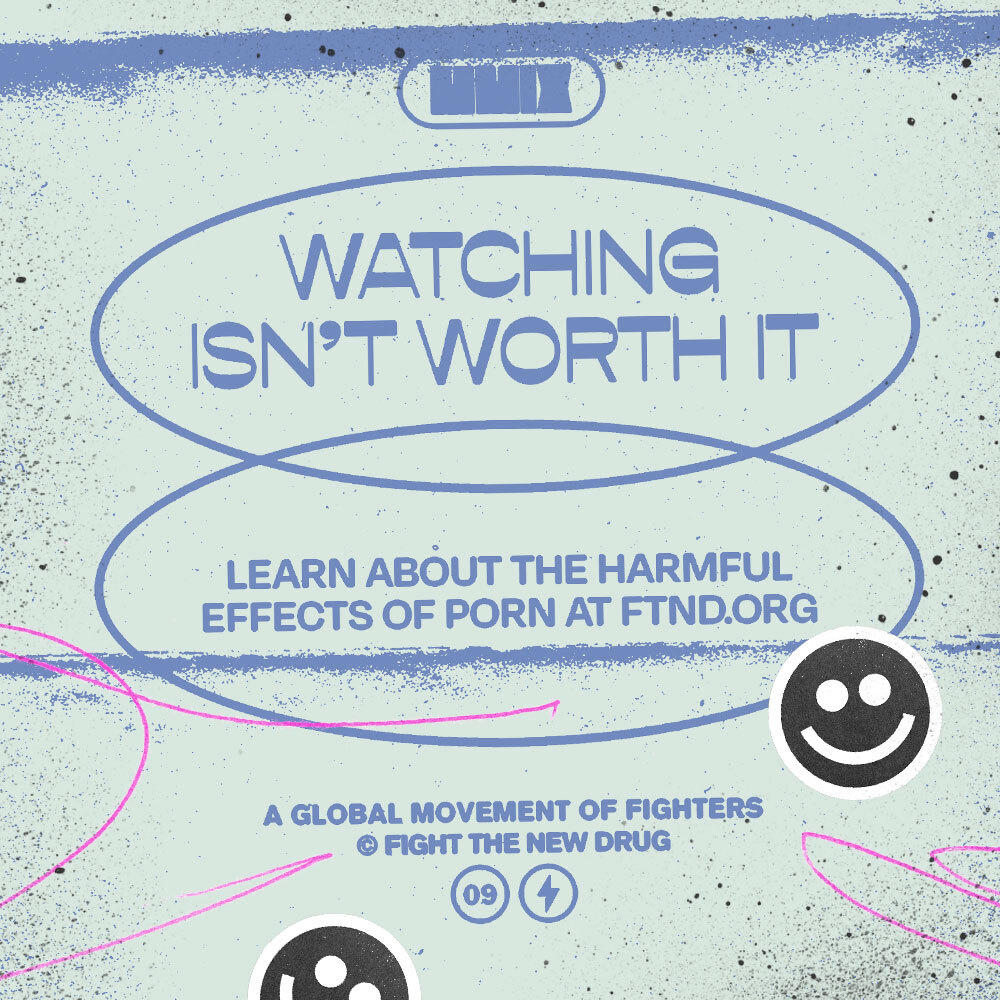In the world of online shopping and at-our-fingertips social media, the idea of waiting for something has become somewhat old-fashioned. Need some new shoes? Just click! Need plans for the night? Just text your friends, and it’ll be taken care of!
The ability to get the things you want quickly and easily isn’t necessarily bad. Still, it is influencing how people consume and understand porn and how porn, in turn, influences the real world in a pretty large-scale and negative way.
“The world of porn,” writes Andrew Brown for The Guardian, “is one where every desire can be (instantly) gratified… Nothing and no one matters more than what the customer wants. This predictably leads to horrible damage to those who produce porn and to the people who are their product.”
Desire Isn’t Everything
We’re all human and subject to certain unique desires, even if we don’t (and shouldn’t) act on all of them all the time. The problem with porn is that it allows people to get instant gratification for desires that might otherwise be ignored or recognized as problematic or hurtful, and that can lessen other parts of life as well—that’s the pornification of reality. There aren’t “no’s” in porn, while there are a lot of “no’s” in real life.
In reality, “the belief that all desire can and should be gratified” is really unhealthy, as Brown puts it.
So let’s consider porn for a minute from that perspective: porn can ultimately be the gateway to this mentality of needing everything to be gratified all the time, even if it’s something like, say, an abusive fantasy or something else harmful. And yes, millions of people are buying into the all-gratification, all-the-time thinking. After all, porn is an enormous global industry that is instantly accessible to anybody with a smartphone and internet access, so it’s not surprising that the instant, momentary gratification porn provides might open some doors that would be better off staying shut.
What Instant Gratification Really Looks Like
Let’s get some specific examples. We’ve already seen porn-fueled changes in society around the world, whether it’s Japan’s sexless millennials, the rise of virtual girlfriends, the increase in black market sales for real rape tapes, or the sex dolls that provide instant gratification without the need for connection.
This desire for instant gratification, no matter the cost or the hurtfulness of the reinforced behavior, hurts more than just the consumer. It’s an inherently selfish way to live. When we view other people as sex objects or as means to an end, it leads both to a lack of respect for others and contributes to problems like sexual exploitation, sex trafficking, and sexual violence.
Real Life Is Better
It’s important to ask ourselves if this is the world we want to live in. Do we want to live in a society where every desire can be gratified instantly but in which it’s hard to say what true connection is and what’s just the appearance of connection? Do we want to live in a society where people don’t have the self-control to deny their desires because they know they’re harmful to themselves and others?
As Brown puts it, “porn-ish fantasy offers a satisfaction which cannot be enjoyed in real life, and for which, therefore, real life cannot entirely substitute.” We don’t want to live in a world where real life is something we’re always trying to escape from. We want a world in which real life, even with its problems and difficulties, is way more real and rewarding than any fake version, even when it doesn’t offer instant gratification.
Why This Matters
Let’s face it: real love isn’t easy, and there isn’t instant gratification, but it’s worth all the hard work. Healthy relationships are essential, and porn diminishes their value by tricking consumers into thinking that instant satisfaction is better than the hard work that goes into real connections.
When we connect with real people in real ways, we can largely avoid the “horrible damage” that Brown recognizes as being a part of porn that affects producers, performers, and consumers alike. Building real relationships with real people in the real world, with all its real difficulties and challenges, is way more worthwhile, and in the long run, it’ll make each of us, and the world itself, a whole lot happier.

Your Support Matters Now More Than Ever
Most kids today are exposed to porn by the age of 12. By the time they’re teenagers, 75% of boys and 70% of girls have already viewed itRobb, M.B., & Mann, S. (2023). Teens and pornography. San Francisco, CA: Common Sense.Copy —often before they’ve had a single healthy conversation about it.
Even more concerning: over half of boys and nearly 40% of girls believe porn is a realistic depiction of sexMartellozzo, E., Monaghan, A., Adler, J. R., Davidson, J., Leyva, R., & Horvath, M. A. H. (2016). “I wasn’t sure it was normal to watch it”: A quantitative and qualitative examination of the impact of online pornography on the values, attitudes, beliefs and behaviours of children and young people. Middlesex University, NSPCC, & Office of the Children’s Commissioner.Copy . And among teens who have seen porn, more than 79% of teens use it to learn how to have sexRobb, M.B., & Mann, S. (2023). Teens and pornography. San Francisco, CA: Common Sense.Copy . That means millions of young people are getting sex ed from violent, degrading content, which becomes their baseline understanding of intimacy. Out of the most popular porn, 33%-88% of videos contain physical aggression and nonconsensual violence-related themesFritz, N., Malic, V., Paul, B., & Zhou, Y. (2020). A descriptive analysis of the types, targets, and relative frequency of aggression in mainstream pornography. Archives of Sexual Behavior, 49(8), 3041-3053. doi:10.1007/s10508-020-01773-0Copy Bridges et al., 2010, “Aggression and Sexual Behavior in Best-Selling Pornography Videos: A Content Analysis,” Violence Against Women.Copy .
From increasing rates of loneliness, depression, and self-doubt, to distorted views of sex, reduced relationship satisfaction, and riskier sexual behavior among teens, porn is impacting individuals, relationships, and society worldwideFight the New Drug. (2024, May). Get the Facts (Series of web articles). Fight the New Drug.Copy .
This is why Fight the New Drug exists—but we can’t do it without you.
Your donation directly fuels the creation of new educational resources, including our awareness-raising videos, podcasts, research-driven articles, engaging school presentations, and digital tools that reach youth where they are: online and in school. It equips individuals, parents, educators, and youth with trustworthy resources to start the conversation.
Will you join us? We’re grateful for whatever you can give—but a recurring donation makes the biggest difference. Every dollar directly supports our vital work, and every individual we reach decreases sexual exploitation. Let’s fight for real love:



